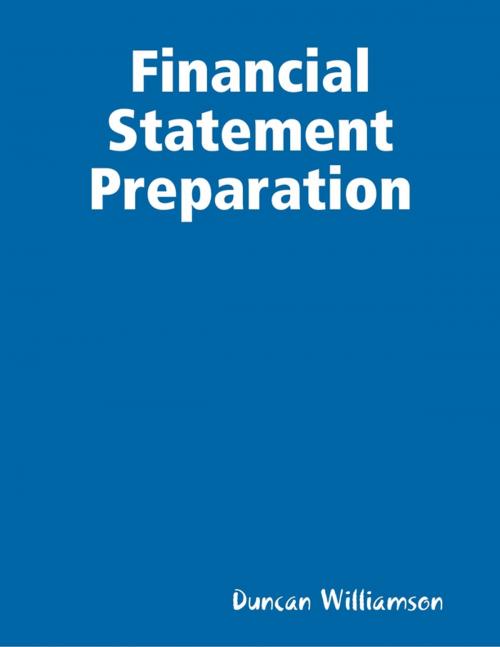| Author: | Duncan Williamson | ISBN: | 9781326559410 |
| Publisher: | Lulu.com | Publication: | February 8, 2016 |
| Imprint: | Lulu.com | Language: | English |
| Author: | Duncan Williamson |
| ISBN: | 9781326559410 |
| Publisher: | Lulu.com |
| Publication: | February 8, 2016 |
| Imprint: | Lulu.com |
| Language: | English |
The bookkeeper keeps the books and the accountant prepares the financial statements. That is, the bookkeeper takes all of the invoices, credit notes, debit notes, returns notes, petty cash vouchers and all the rest of it, puts them all into order and enters everything into the Journals and the Ledgers. Once everything is entered and checked and double checked, the accountant takes over and prepares the accounting statements of the business. As you read through this eBook, you should try to read your own organisation’s financial statements in parallel with it. If you can’t get into your accounting department or the financial statements are not available to you, there are Web Links at the end of this eBook that allow you to read and/or download copies of financial statements from a wide variety of businesses. See the references for additional useful information.
The bookkeeper keeps the books and the accountant prepares the financial statements. That is, the bookkeeper takes all of the invoices, credit notes, debit notes, returns notes, petty cash vouchers and all the rest of it, puts them all into order and enters everything into the Journals and the Ledgers. Once everything is entered and checked and double checked, the accountant takes over and prepares the accounting statements of the business. As you read through this eBook, you should try to read your own organisation’s financial statements in parallel with it. If you can’t get into your accounting department or the financial statements are not available to you, there are Web Links at the end of this eBook that allow you to read and/or download copies of financial statements from a wide variety of businesses. See the references for additional useful information.















